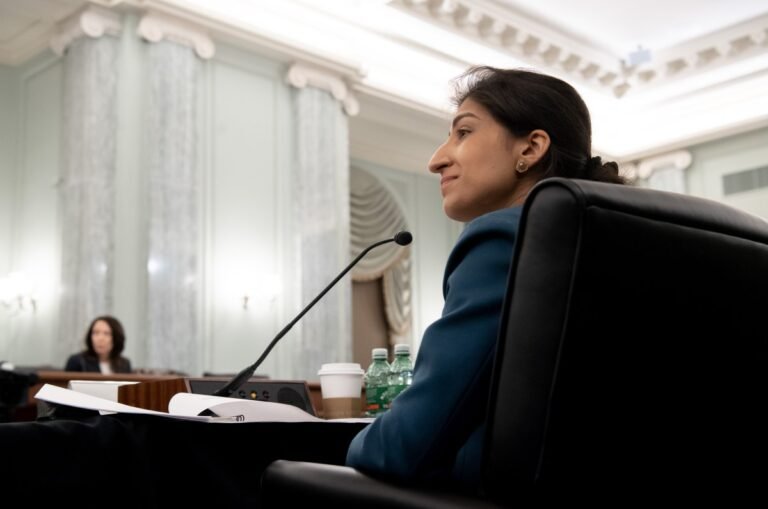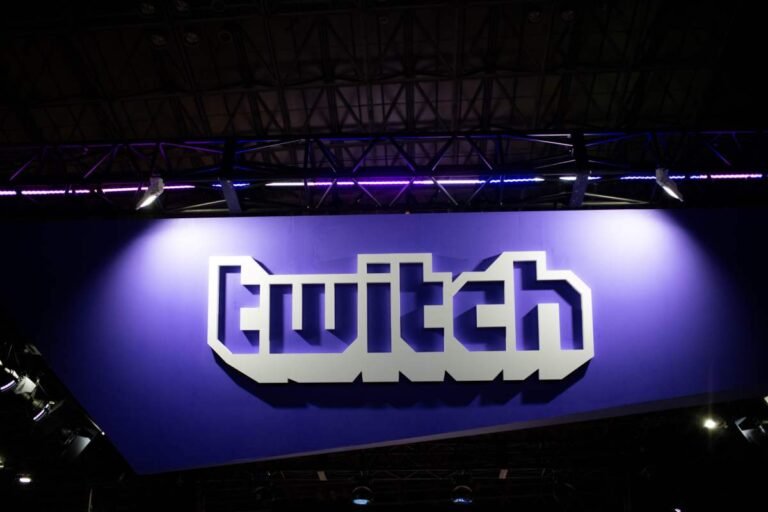
The U.S. Federal Trade Commission is focusing its efforts on going after Big Tech, according to FTC Chair Lina Khan, who spoke at TechCrunch’s Strictly VC event in Washington, D.C., on Tuesday.
Khan said the agency is focused on going after the players that are doing the biggest harm, as opposed to just increasing the number of cases that it brings forward.
“One thing that’s been important for me is to make sure that we’re actually looking at where we see the biggest harm,” Khan said.
The FTC and the Department of Justice have struck a deal to investigate Microsoft, Open AI and Nvidia over potential antitrust violations, according to The New York Times.
The types of cases that the FTC selects can act as a deterrent, she said, noting that the FTC is already seeing that happen.

Twitch has come up with a solution for the ongoing copyright issues that DJs encounter on the platform.
Participating DJs in the program must contribute a percentage of their earnings from streams to cover some of the music rights costs.
Twitch partnered with all major labels to bring a majority of popular music to the offering, including Universal Music Group, Warner Music Group, and Sony Music, as well as several independent labels represented by music licensing partner Merlin.
Additionally, a one-year subsidy is being offered to existing Twitch DJs, providing financial support and a transition period to adapt to the new program.
Twitch will soon require DJs to share part of their revenue with the music industry.

Welcome to Startups Weekly — your weekly recap of everything you can’t miss from the world of startups.
Despite this general downturn, certain segments like generative AI continue to attract significant funding, indicating a selective yet substantial interest in specific AI applications.
AI investment is slowing down for a few reasons, like the crowded market and the steep costs of building big AI models.
Investors are getting pickier and want to see real, solid returns instead of just throwing money at hopeful growth.
(That isn’t stopping them from raising billion-dollar funds focusing on AI, of course.)

They can both sell out Madison Square Garden (… and also, their fans kind of hate Ticketmaster now).
Dropout’s Dungeons & Dragons actual play show, Dimension 20, is getting pretty close to selling out a 19,000-seat venue just hours after ticket sales opened to the general public.
When I was playing D&D in the early eighties, I would have never believed that there was a future where people would watch live D&D at Madison Square Garden.
About an hour after the Madison Square Garden tickets went on sale, the few dozen upper bowl tickets left were $800.
Creators can sell out Madison Square Garden.

If the decisions made by corporate boards of directors can indicate where a company wants to be focusing, Amazon’s board just made an interesting move.
The company announced on Thursday that Andrew Ng, known for building AI at large tech companies, is joining its board of directors.
And given the AI whiplash that every big tech company is currently dealing with, it feels timely that McGrath is stepping away from the board now.
To stay at the forefront of the tech industry, Amazon will be looking for better thought leadership on the next steps in its artificial intelligence strategy.
It’s worth remembering that Amazon has been a leading player in AI for a long time.

Working from home isn’t going away, even if some CEOs wish it would Most workers crave flexibility and work-life balanceWhen I started working from home in the late 1980s as a freelance technical writer, I was clearly an outlier.
Today, 14% of U.S. workers work at home full time (including me), and that number is expected to increase to 20% by next year, according to data published by USA Today.
Wayfair, the Boston-based online furniture company, concentrated on remote workers over in-office folks in a layoff earlier this year, according to a WSJ report.
Meanwhile Michael Bloomberg suggested remote workers weren’t actually working, but playing golf (which honestly sounds like projecting to me).
That’s a lot of executive energy being directed against working from home and toward working in the office.

Cynicism is a quality taken almost for granted in tech journalism, and certainly we are as guilty as the next publication.
“A Brief History of the Future,” hosted by Ari Wallach, also has the compelling quality of, as a PBS production, being completely free.
But now we’re at a point that if we continually do that, we’re going to we’re going to lose the thread.
And everyone seems to be relieved to be able to talk about the promise of the future rather than the threat of it.
In case you’re wondering what moneyed special interest is trying to placate you with this beneficent presentation of a kindlier, wiser future… don’t worry, I asked.

In its early days, OctoAI focused almost exclusively on optimizing models to run more effectively.
With the rise of generative AI, the team then launched the fully managed OctoAI platform to help its users serve and fine-tune existing models.
OctoStack, at its core, is that OctoAI platform, but for private deployments.
Deploying OctoStack should be straightforward for most enterprises, as OctoAI delivers the platform with read-to-go containers and their associated Helm charts for deployments.
For developers, the API remains the same, no matter whether they are targeting the SaaS product or OctoAI in their private cloud.

Earlier this year, Bret Taylor and Clay Bavor launched a new company, Sierra with the goal of building these flexible AI agents.
“We believe that somewhere between 70% and 90% of interactions are going to be through AI agents in the future.
And Ultimate has done a really nice job solving up to 80% of interactions via their AI agents,” Eggemeier told TechCrunch.
He says that while the plan is to incorporate Ultimate technology into the Zendesk platform, they will continue to offer stand-alone products to other companies.
Ultimate launched in 2017 and raised $27 million, per Crunchbase.

TikTok ban: What’s going on with the proposed bill in Congress Congress could force TikTok to part with its Chinese parent companyTikTok faces an uncertain fate in the U.S. once again.
The bill, which many of its detractors reasonably describe as a “ban,” would force ByteDance to sell TikTok within six months for the app to continue operating here.
The campaign to force ByteDance to sell TikTok to a U.S. company originated with an executive order during the Trump administration.
Trump’s threats against the company culminated in a plan to force TikTok to sell its U.S. operations to Oracle in late 2020.
We may learn more next week if senators begin weighing in on the prospect of creating their own version of the House bill.













